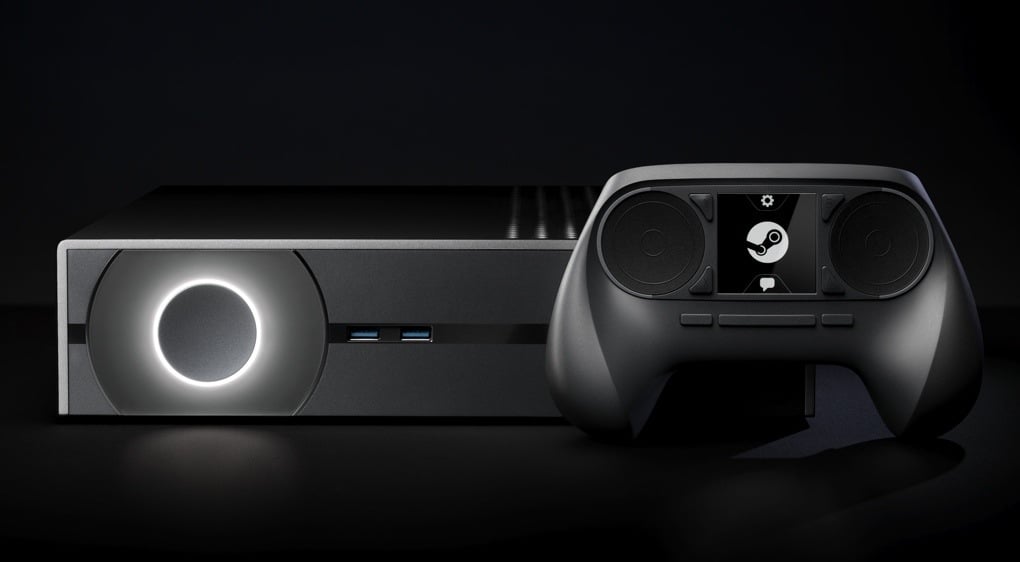The good moments of 2013

Was this the year of Linux in the desktop? That’s hard to answer. The rise of ChromeOS could very well mean this was the beginning of Linux hitting mainstream on desktop computers. Sadly, we don’t the know the future! If ChromeOS does rises and becomes a viable competitor to MS Windows then 2013 will be remembered as the year of Linux. If it doesn’t, how will the 2013 be remembered?
The best moments
The year ChromeOS grew
Even if ChromeOS never surpasses Microsoft Windows, the recent news that Chromebooks sold more in recent quarters than Apple sold Macbooks are impressive. In fact, it’s even more impressive than that, the estimate puts Chromebooks sales at 21% of all notebook sales. in the United States. Is this the year of Linux in desktop then? As I said at the beginning, we need to know how things evolve before claiming this was the year (for example, sales may drop next year), but regardless it was an amazing year for Linux.
Despite the skepticism of many, including me, ChromeOS seems to be the one that may give Linux the only market it has yet to dominate. Linus Torvalds expressed hopes that it would and I thought it was absolutely impossible that it would:
Windows and Mac OS X run Google Chrome just fine, and therefore have access to anything ChromeOS has access to, plus a lot of powerful applications. If you’re a Linux enthusiast you don’t care about the operating system that ships with computers, you’re going to replace it anyway, but we’re not the market.
Sadly ChromeOS has nothing to offer to any normal customer buying such an expensive device [Chromebook Pixel]. I simply don’t understand why Google doesn’t make good use of the ecosystem that the open source community has built around Linux for all these years.
I’ve been proven wrong. Although, in my defence, I was talking about a $1,300-1,450 computer. Apparently the secret of ChromeOS’ success is the price of Chromebooks. Chromebooks are the new netbooks. This is precisely the reason we need to let some time pass before claiming success. There was a netbook fever in the past, Linux was selling well on them and that market collapsed.
Android finally takes over the tablet market
It wasn’t easy. Android surely had a harder time entering and shaking the tablet market. From the first Android tablets released with Android 2.2 to Android 4.4, nine releases later, including one meant only for tablets (3.x, Honeycomb), the efforts by Google and its partners finally took over Apple’s iPad.
The Nexus 7 released in the middle of 2012 and its successor released this year are probably the biggest contributors to the change in winds. Striking the right balance between price, performance and build quality, the Nexus 7 made the proposition of a $500 tablet a much tougher sale. It was big enough last year that Apple compared its own iPad Mini directly with the Nexus 7 when it introduced it. This year, Google took things even further combining a slightly higher price with a much better end product.
The sensible pricing of upgrades makes Apple’s look absurd: A 32GB LTE-enabled Nexus 7 (2013) costs $350, A 32GB LTE-enabled iPad Mini with Retina Display costs $629. Google once again chose a strategy of hitting a balance between quality and pricing, a.k.a bigger bang for the buck. So far it has worked flawlessly in the markets that aren’t altered by carrier subsidies.
IBM deeply invested in Linux
There’s many companies that contribute to the development of Linux. But not many pledge to invest $1,000,0000,000 dollars on it over five years. Linux has long dominated the supercomputer and data center industry so it’s not surprising that a supercomputer and data center colossus is investing in Linux, the surprising part (even if it isn’t the first time) is the stratospheric amount.
With the historical partners of the Linux Foundation still investing and with the explosion of Linux in the consumer space, on tablets, smartphones, perhaps notebooks (if Chromebooks manage to maintain themselves) and probably watches and glasses in the next couple of years, support for the operating system with the cutest mascot (yeah, I said it *BSD fans) has never been so big.
Steam on Linux and SteamOS
My favourite announcements and releases by far came all from Valve. Linux has long had issues with gaming, even though its user base is disproportionally interested composed by gamers. Many users were forced to keep Windows just to be able to play. We can thank Microsoft and its Windows 8, along its Xbox for Windows, for alienating Valve in more than a couple of ways.
Going further from merely adding support for Steam on Linux, Valve also announced its very own Linux distribution. SteamOS is available (although is still in Beta) for anyone to download and install in their own hardware. More importantly, any OEM that wishes to can build Steam Machines that will be powered by SteamOS.
Valve has also picked a selected few who are currently test driving SteamOS on a custom Steam Machine by Valve (that comes in different configuration to test different hardware settings). Another big part is the Steam Controller which according to Valve will provide accuracy and speed closer to that a mouse rendering games that are uncomfortable to play with traditional controllers playable.
Steam is extremely popular and the promise of a diversified gaming market with many different Steam Machines (console-like PCs) has incentivised manufacturers of graphic cards to ramp up their development and support for Linux. So the days of crappy graphics drivers (especially those from NVidia) may soon be over. Valve’s founder has called Linux the future of gaming, let us hope he’s right.
Conclusions
Taking over the tablet market? Grabbing 21% of all notebook sales trough ChromeOS? IBM investing one billion dollars in Linux? Valve releasing the long awaited Steam for Linux accompanied by its own Linux distribution aiming to become the Android of gaming? Seriously, all of this in a single year?
How can this year be anything but a resound success? 2013 may or may not be the year of Linux in desktop, but it can easily be argued that is yet another year of Linux. And unlike the last time, it wasn’t the year of just Android, it truly was the year of all Linux.
Will the year be remembered as an amazing year for Linux then? I think so. But we shouldn’t forget the bad parts of 2013.





So Google converting Linux into a heavily modified data mining tool is a good thing?
Google and Android are also included in the bad moments from 2013 (but I think pretty much everyone in the Linux community agrees that is better to have a market controlled by Google’s Android than it is by Apple or Microsoft)..